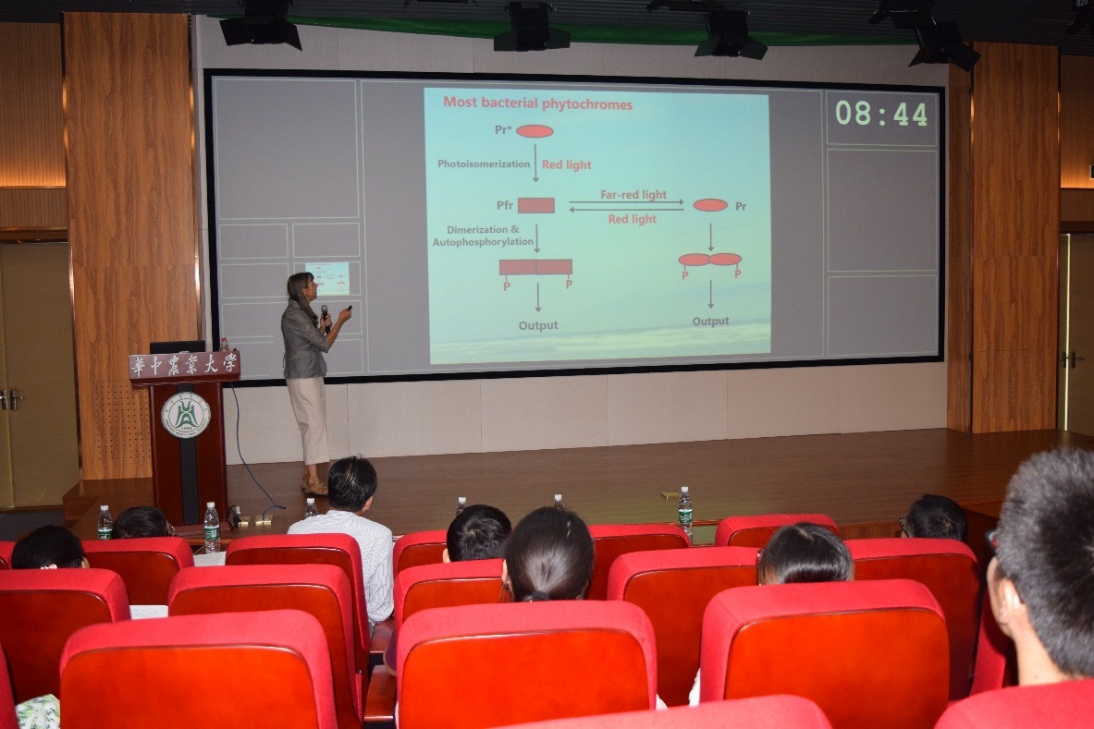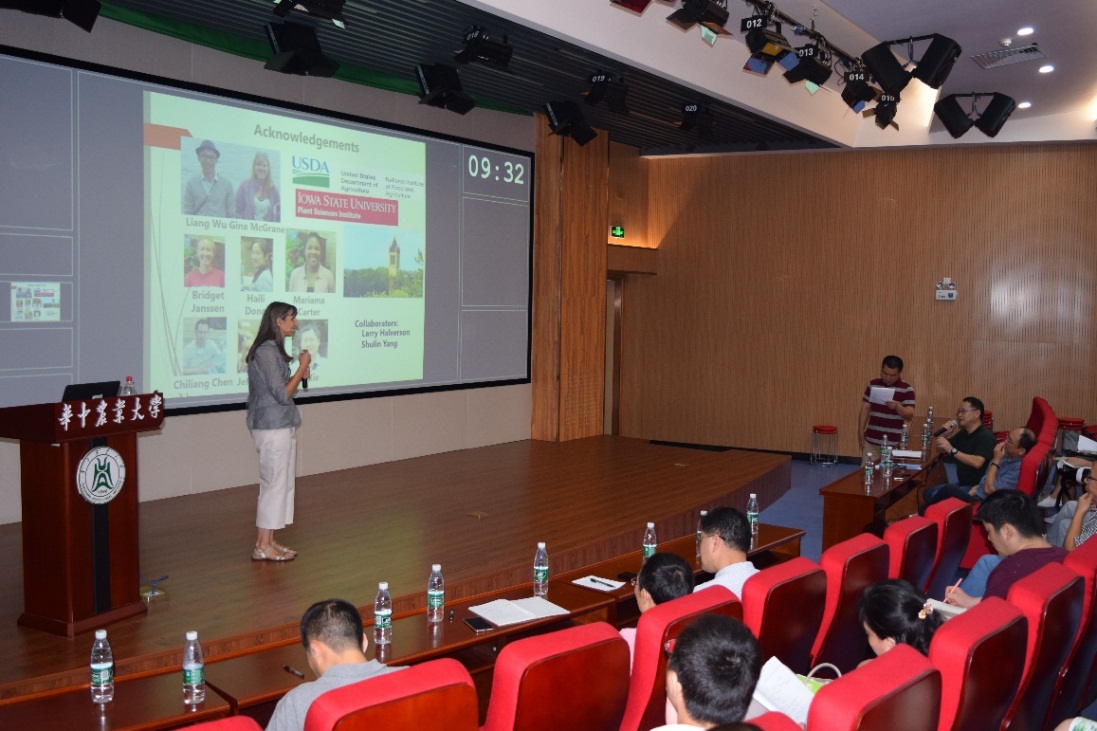Core tips:On the morning of September 12, 2017, Professor Gwyn Beattie of Iowa State University, USA, participated in the Frontier Forum on Microbiology organized by College of Life Science and Technology, bringing the academic report entitled "Impacts of light and water limitation on plant-microbe/microbiome interactions".

Professor Gwyn Beattie made a wonderful report at the 73rd Forum on Microbiology

Professor Gwyn Beattie conduct academic exchanges with the students and teachers who participated in this report
Professor Gwyn Beattie, a tenured professor of Iowa State University, USA, an expert in international plant-microbial interaction, and a senior editor of Molecular Plant-Microbe Interactions.She is a member of the Public Policy Committee of the American College of Plant Pathology and published nearly 50 papers and monographs in PNAS, mBio, Annu Rev Phytopathol, Plant J and other magazines.
In this report, Professor Gwyn Beattie focuses on the effects of light and water constraints on the interaction between plants and microbes / microbes. First , Professor Gwyn Beattie pointed out that plants can trap and concentrate light, plant epidermal cells can act like lenses and focus light , while the plant stems and roots act as bundles of optical fibers that conduct light efficiently over long distances. Then she introduced the role of light and bacteria photosynthetic BphP1 and LOV proteins in regulating the movement of bacteria in Pseudomonas syringae, respectively. Professor Gwyn Beattie proposed two hypotheses:Plant-associated bacteria exploit light,and particularly far-red light,as a signal;Repeated growth of plants under drought stress enriches for microbial communities that contribute to drought tolerance.She conclude that,genes related to water stress tolerance are disproportionately induced by light and BphP1 and water&light-response pathways are integrated.